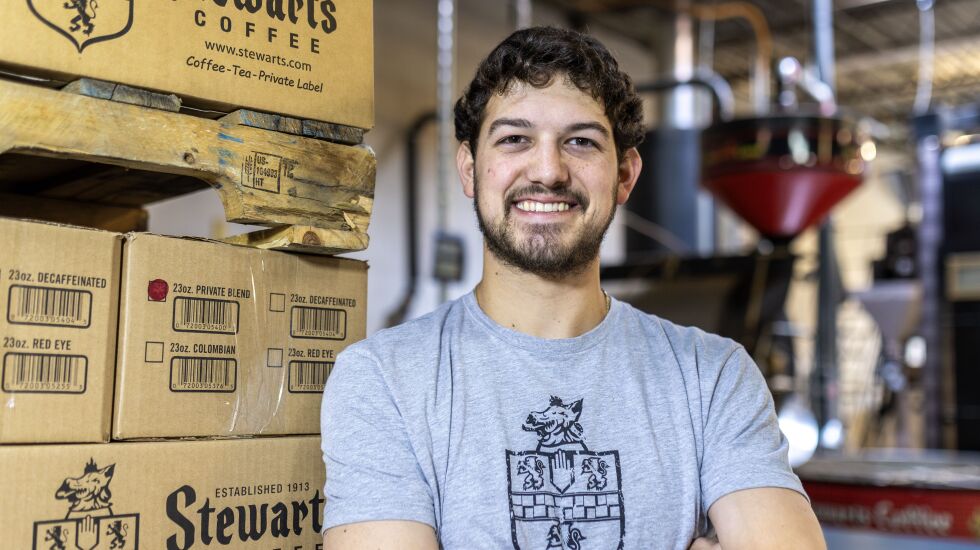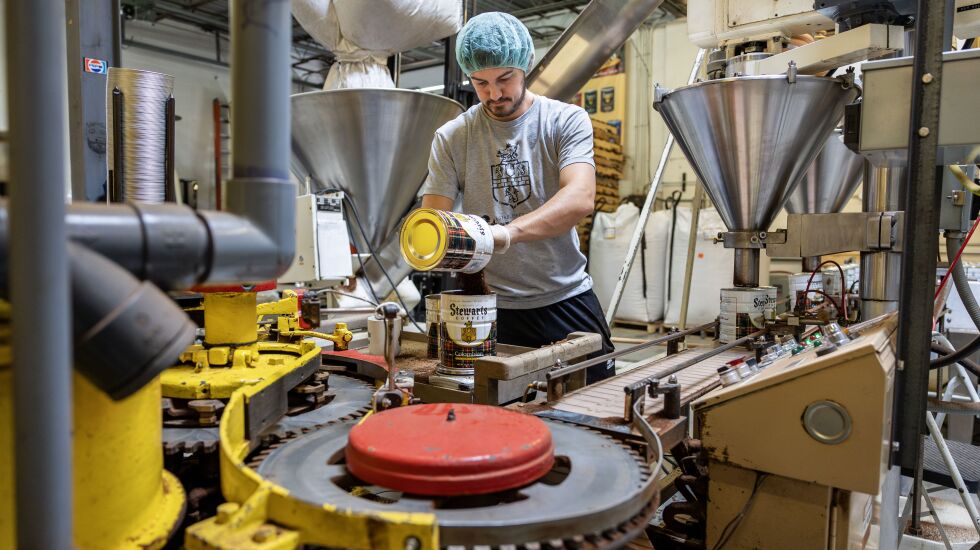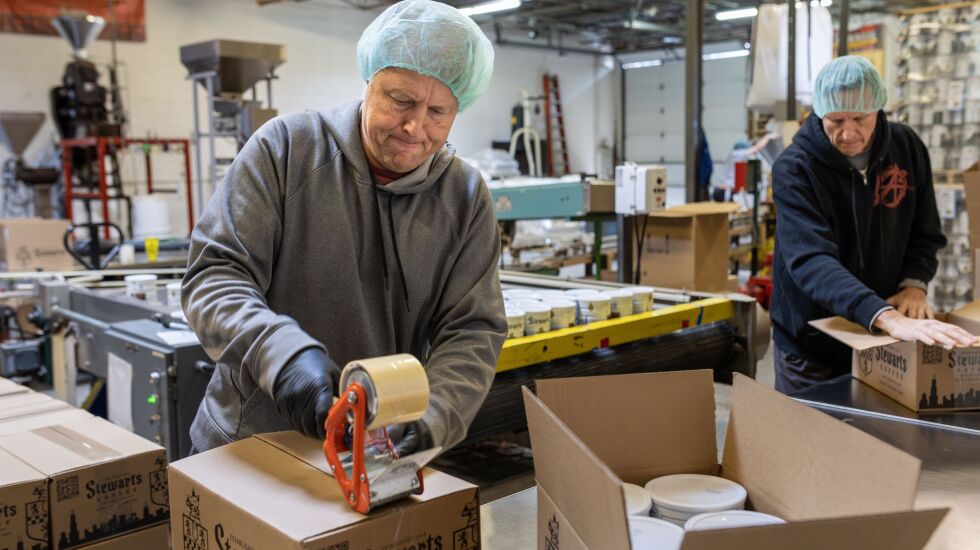
People’s morning routines have changed the last few years. One thing that’s stayed constant is the demand for a morning cup of joe.
It’s fitting that a guy named Joey is laboring to fill that demand on behalf of Stewarts Coffee, a family-owned company in the Chicago region that’s been around for 110 years, battling bigger brands for valuable space on grocery shelves.
Joey Cappuccitti is the chief operating officer at Stewarts, which runs out of a building in Carol Stream. His title means he’s the all-purpose head of sales and production for a company that has had setbacks but is seeking new ways to reach customers. One venture puts our coffee craving in service of the sick or disabled.
“I deliver the coffee to some stores. I’m the warehouse grunt as well,” he said. “I roast the coffee. I grind it and help pack it.”
He’s Mr. Fix-It on the production line, too, having to reschedule an interview because an augur elevator took three hours to repair. The company staff is four people — himself, two part-timers and his dad, the CEO.
With his hand in everything, Cappuccitti said he tries to be mindful he’s serving customers who have stayed loyal to Stewarts for years, even as it became harder to find.

Much of its business today comes from Chicagoans who moved elsewhere and still want the Stewarts “private blend” of 100% Arabica beans the company says is unchanged from its founding. Customers find it on Amazon or the company website when they get a taste for the old hometown.
Within the market for ground coffee, Stewarts always has occupied a niche. It’s costlier than mass-market Folgers or Maxwell House, and its cans are somewhat smaller. But Stewarts would tell buyers they could use less coffee to get a flavorful cup. It used to include a plastic “scoon,” smaller than a tablespoon, in each tin until the scoon manufacturer went belly up.
“The clientele for Stewarts is very loyal across multiple generations. I always like it when people remember those scoons,” Cappuccitti said.
As for the higher price, Cappuccitti couldn’t resist a joke: “The reason is because we’re not putting sawdust in the coffee.”
Compared against the past, Stewarts is in reduced circumstances, but Cappuccitti insists the company won’t disappear. He said space has grown tight in its 10,000-square-foot hub at 301 Carlton Drive in the western suburb.
For most of its life, the company operated in Chicago, with several dozen workers. The Cappuccitti family bought the company a few years ago from the 4th generation of the Stewarts. CEO Joseph Cappuccitti is an accountant and keeps his eye on the books, while his son handles the rest.
Business was hurt during the 1990s when some grocery distributors and stores closed, Joey Cappuccitti said. Stewarts suffered again when Dominick’s shut down a decade ago.
Stewarts’ main retail outlet is Jewel-Osco, a relationship going back decades. Cappuccitti said Jewel, which advertises its commitment to local products, agreed a few months ago to take Stewarts off the bottom shelf and bring it closer to a shopper’s eye level.
He said he’s trying for distributor deals at grocers that expanded to fill the Dominick’s void, such as Caputo’s and Pete’s Fresh Market. Mariano’s has been tough but could be added if the corporate parents of Mariano’s and Jewel combine in a merger, Cappuccitti said.
“The coffee market is so hot that they have to take product off the shelf before they put something on,” he said.
The pandemic affected where people bought their brews but didn’t diminish demand. “It almost benefited us,” Cappuccitti said. “It got us to think differently about how the customer thinks.” Some market studies show American adults spend around $2,000 a year on the beverage, double the amount from a decade ago.

Stewarts is working to grow its longstanding private label business, grinding beans packaged with the names of businesses, such as the Edward Jones brokerage and the Patrick chain of auto dealers.
Another line is especially close to Cappuccitti’s heart. It’s called Project Donate — coffee for a cause. For a little more than a comparable bag of Starbucks, customers can purchase coffee with 40% of the sale being donated to combat disease, such as ALS or Alzheimer’s, or to support Lurie Children’s Hospital. Stewarts invites proposals for additional foundation partners on its website.
Project Donate also supports research into Rett syndrome, a genetic disorder that affects motor skills and language. Cappuccitti has a cousin who suffers from it. He said he thinks of her every day during his hours at the warehouse.
Coffee pleases people, but he thinks maybe it can do something even more worthwhile.







